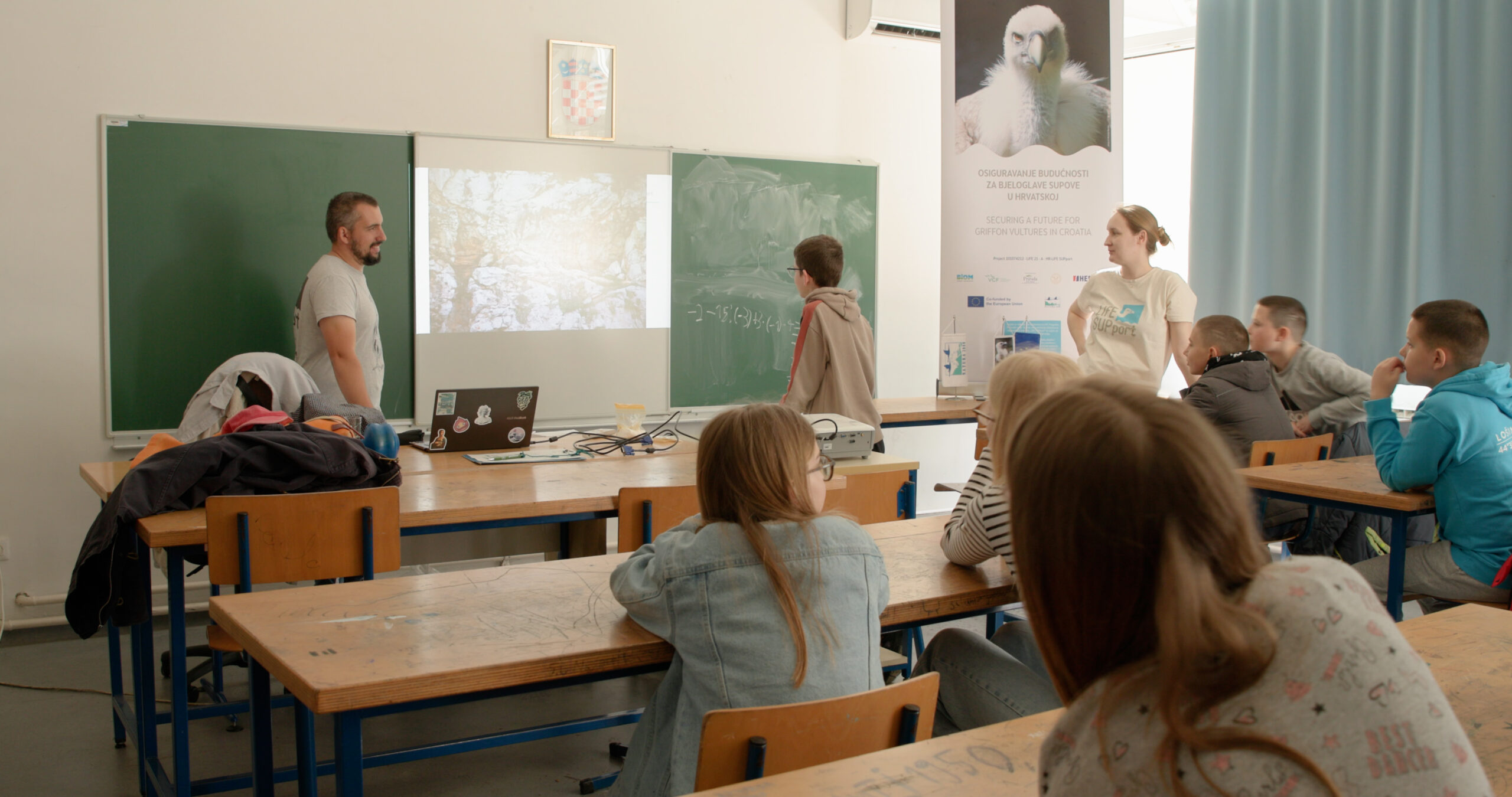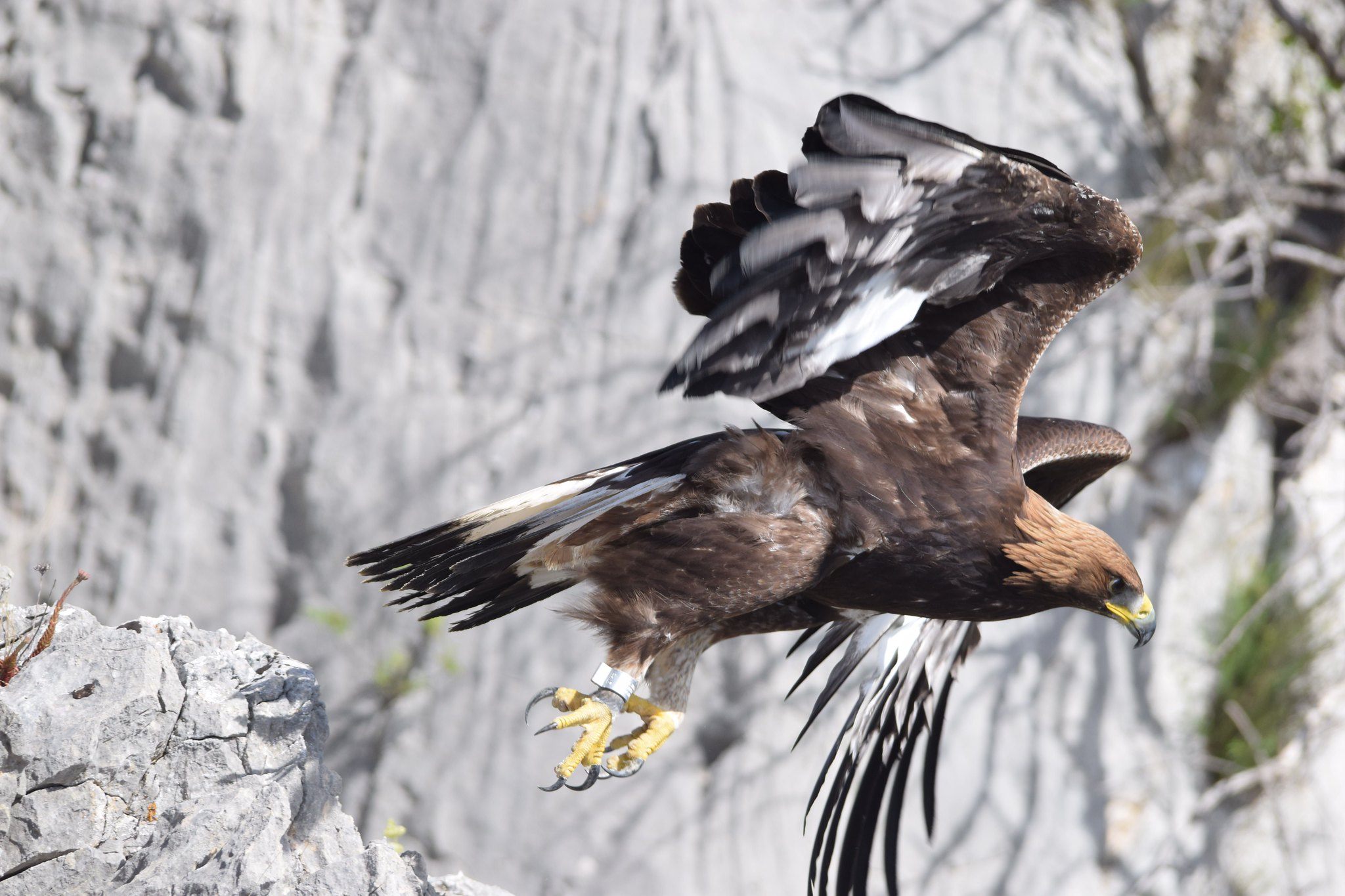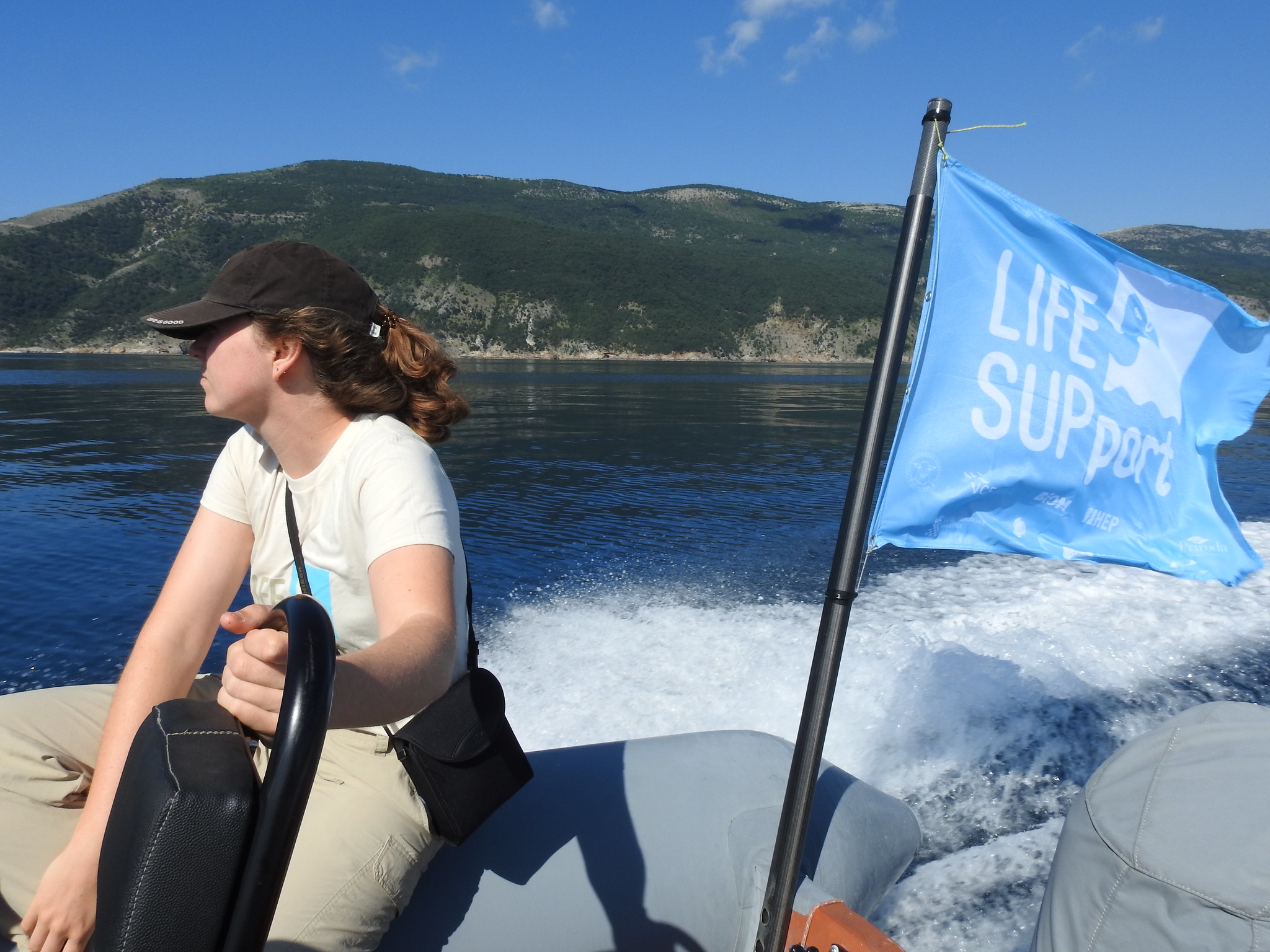Preserving extensive sheep farming is crucial for the conservation of the Griffon vultures; however, due to the presence of jackals on Krk, this practice is close to extinction
The main goal of the European LIFE SUPport project is to improve the conditions necessary for the nesting and the survival of the Griffon vulture (Gyps fulvus), one of the last remaining vultures in Croatia. This can be accomplished primarily by making sure that a feed resource for that population is always available. Since sheep carcases are the main natural feed resource for Griffon vultures in the region of Kvarner, extensive sheep farming – a traditional practice in this area – is crucial for their preservation.The number of sheep on the islands of Kvarner, however, has dwindled significantly in the last few decades, particularly after the introduction of non-native wild animals. The wild boar is a widespread problem that sheepherders on nearly every island face, but it is the jackal that has brought sheep farming on Krk to near extinction.
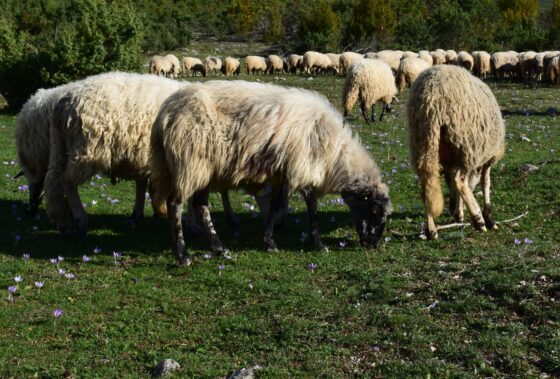 This has been the subject of discussion on the meeting with sheepherders held in the village of Lakmartin on the island of Krk on 29 November 2023 as part of the project activities related to the methods of herd protection. The meeting was organised by the agricultural cooperative Poljoprivredna zadruga “Otok Krk” with the assistance of project partners, the Association BIOM and the Public Institution for Protected Area Management of Primorje-Gorski Kotar County (PI Priroda). Fifteen sheepherders attended the meeting. This was the first meeting with sheepherders as part of the LIFE SUPport project, and it was a follow-up on the subjects introduced during the kick off meetings held in July of this year in the village of Baška on Krk and the village of Beli on Cres.
The project partners first introduced the LIFE SUPport project, and then talked about the various options and forms of cooperation that are open while the project is ongoing. “Griffon vultures survive on the islands of Kvarner in no small part due to the preservation of sheep farming in this area. Connecting the agriculture and nature protection sectors is paramount”, Karla Škorjanc, the director of Poljoprivredna zadruga “Otok Krk”, pointed out at the beginning of the meeting.
This has been the subject of discussion on the meeting with sheepherders held in the village of Lakmartin on the island of Krk on 29 November 2023 as part of the project activities related to the methods of herd protection. The meeting was organised by the agricultural cooperative Poljoprivredna zadruga “Otok Krk” with the assistance of project partners, the Association BIOM and the Public Institution for Protected Area Management of Primorje-Gorski Kotar County (PI Priroda). Fifteen sheepherders attended the meeting. This was the first meeting with sheepherders as part of the LIFE SUPport project, and it was a follow-up on the subjects introduced during the kick off meetings held in July of this year in the village of Baška on Krk and the village of Beli on Cres.
The project partners first introduced the LIFE SUPport project, and then talked about the various options and forms of cooperation that are open while the project is ongoing. “Griffon vultures survive on the islands of Kvarner in no small part due to the preservation of sheep farming in this area. Connecting the agriculture and nature protection sectors is paramount”, Karla Škorjanc, the director of Poljoprivredna zadruga “Otok Krk”, pointed out at the beginning of the meeting.
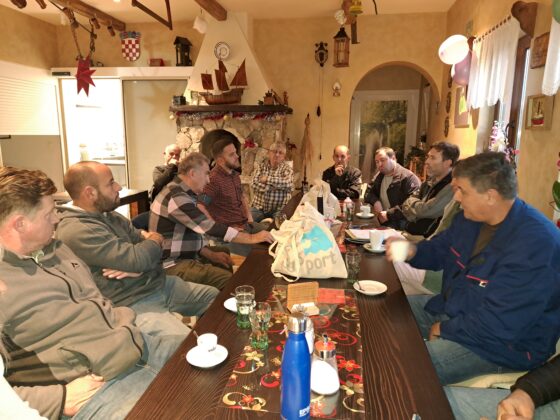 The sheepherders spoke about various issues that make their everyday work difficult, particularly about the invasive wild animals – the wild boar and the jackal. The damage caused by those animals can be substantial. Other than that, the overgrowth of karst pastures, and the legal obstacles that prevent the removal of woody vegetation from those areas also add to their troubles.
The LIFE SUPport partners will offer their support to the efforts of establishing safeguards to protect sheep from invasive wild animals. These measures will be tested under the project, and the findings during the course of the project, as well as the past experiences of the sheepherders, will help improve them. The majority of the sheepherders that were present initially decided in favour of applying for the use of a fixed guard rail, and a smaller number decided on livestock guardian dogs, while the conclusion that electrical fences are an ineffective means of protection against jackals in the karst-island context was reached by all of them.
Apart from the safeguards that will be tested under the project, the farmers asked for a greater cooperation with hunting associations, the Ministry of Agriculture, and the company Hrvatske šume (Croatian Forests) so that a sustainable solution to this problem can be reached.
(This article was translated into English by Lucija Grzunov)
The sheepherders spoke about various issues that make their everyday work difficult, particularly about the invasive wild animals – the wild boar and the jackal. The damage caused by those animals can be substantial. Other than that, the overgrowth of karst pastures, and the legal obstacles that prevent the removal of woody vegetation from those areas also add to their troubles.
The LIFE SUPport partners will offer their support to the efforts of establishing safeguards to protect sheep from invasive wild animals. These measures will be tested under the project, and the findings during the course of the project, as well as the past experiences of the sheepherders, will help improve them. The majority of the sheepherders that were present initially decided in favour of applying for the use of a fixed guard rail, and a smaller number decided on livestock guardian dogs, while the conclusion that electrical fences are an ineffective means of protection against jackals in the karst-island context was reached by all of them.
Apart from the safeguards that will be tested under the project, the farmers asked for a greater cooperation with hunting associations, the Ministry of Agriculture, and the company Hrvatske šume (Croatian Forests) so that a sustainable solution to this problem can be reached.
(This article was translated into English by Lucija Grzunov)



